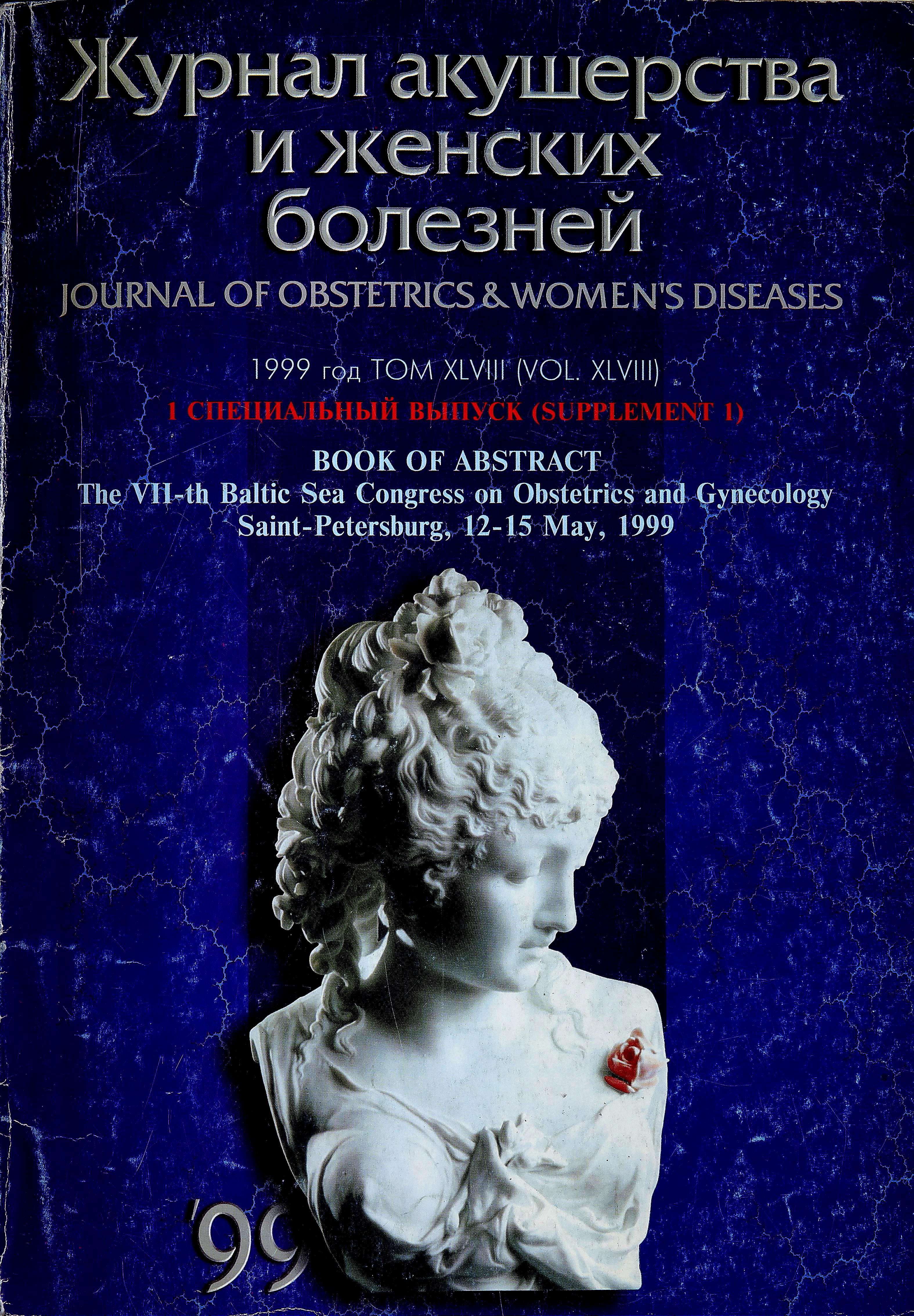Sexual dysfunction in gynecologic patients with chronic pelvic pain
- Авторы: Scheglova I.Y.1
-
Учреждения:
- I.P. Pavlov State Medical University
- Выпуск: Том 48, № 5S (1999)
- Страницы: 138-138
- Раздел: Статьи
- Статья получена: 21.02.2022
- Статья одобрена: 21.02.2022
- Статья опубликована: 15.12.1999
- URL: https://journals.eco-vector.com/jowd/article/view/101393
- DOI: https://doi.org/10.17816/JOWD101393
- ID: 101393
Цитировать
Полный текст
Аннотация
The purpose of this study was the next: first, to investigate the association between chronic pelvic pain (CPP) and sexual distress in gynecologic patients, second, to correlate the history of sexual abuse and somatization in groups of women with CPP and without pain. The Middlesex Hospital Questionnaire (MHQ) and structured sexual interview were administered to 63 gynecologic patients, who already underwent the necessary operative treatment.
Ключевые слова
Полный текст
The purpose of this study was the next: first, to investigate the association between chronic pelvic pain (CPP) and sexual distress in gynecologic patients, second, to correlate the history of sexual abuse and somatization in groups of women with CPP and without pain. The Middlesex Hospital Questionnaire (MHQ) and structured sexual interview were administered to 63 gynecologic patients, who already underwent the necessary operative treatment. All women were divided into 2 groups: 31 patients with CPP and 32 pain-free. No significant differences in age, educational attainment, martial status, severity or type of gynecologic pathology, rates of anxiety and phobia (MHQ) were observed between 2 groups. Besides, both of them reported low sexual desire, sexual aversion, partial failure to attain the lubrication-swelling response, inhibited orgasm in 50-75% intercourses. Number of sexual trauma (incest, rape, repetitive molestation's) was just the same in patients with CPP and without pain. However, women with sexual trauma in both groups reported younger age at first intercourse, higher total number of sexual partners and of painful intercourse's, higher scores of hysteria and somatic anxiety (MHQ). A strong correlation was observed between hysterical scores (MHQ) and history of sexual trauma in CPP patients. No similar correlation was noticed in comparison group. One possible explanation for these findings would be that women, who somatized, are more likely to exaggerate or fabricate histories of sexual trauma. Nevertheless, a history of sexual abuse and high hysterical scores (MHQ) can be predictive of increased risk for CPP in gynecologic patients. The sexual dysfunction in gynecologic patients should be taken into account in order to achieve their good well-being.
Об авторах
I. Yu. Scheglova
I.P. Pavlov State Medical University
Автор, ответственный за переписку.
Email: info@eco-vector.com
Россия, St. Petersburg
Список литературы
Дополнительные файлы







